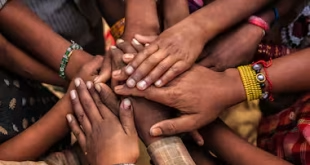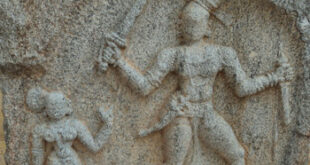- In C.S. Chellappa’s Tamil novel, Vaadivaasal (the place of entry for bulls in an arena), there is a scene which captures the spirit of bull tamers in Tamil Nadu.
- After being gored by the invincible bull ‘Kaari’, Picchi’s father Ambuli would tell him, “Swear on your father.
- After me, this arena will be yours to rule, Be patient.” Years later, Picchi avenges his father’s death by taming ‘Kaari’; but he vividly remembers the day his father was gored and the smell of blood that gushed like a fountain from his father’s intestines entered his nostrils.
- Now, the story is being made into a Tamil film with the Jai Bhim-fame Suriya in the lead.
- Obviously, there is a mood of celebration following the Supreme Court’s May 18 verdict upholding the Prevention of Cruelty to Animals (Tamil Nadu Amendment) Act, 2017, and the Prevention of Cruelty to Animals (Conduct of Jallikattu) Rules, 2017, paving the way for the conduct of jallikattu, also known as ‘Eru Thazhuvuthal’, during the Pongal celebrations.
- “The protesters saw the ban as an attack on Tamil culture and identity, though many of them might not have watched a live bull sport in their lifetime. Thus, jallikattu became a symbol of Tamil pride,” writes A. Kalaiarasan in The Economic and Political Weekly.
- Cutting across political lines, governments fought for the cause of jallikattu. After assuming office in 2021, Chief Minister M.K. Stalin constituted a team of lawyers and experts to argue the case in the Supreme Court.
- “We will organise jallikattu in the new arena coming up at Alanganallur,” he said in reaction to the court order. This fervour reflects the special place this ancient sport has in Tamil society.
- Certain locations act as a centre for a group of villages and each location has its variations of the sport — Manjuvirattu, Velivirattu and Vadamadu. Each variant has its set of rules and procedures.
- Tamil Sangam literature waxes eloquent on the sport. A poem in Kalittokai says that if a shepherd boy is afraid of hugging a bull, he will not be hugged by a shepherd girl even in his next birth.
A modern view
- But the modern world has an entirely different view. Late Tamil scholar K. Kailasapathy, in his book Heroic Poetry, argues against the viewpoint of “medieval and modern writers who tend to relegate these poems to a lower position”.
- “They are said to have peculiar customs among a particular community, thus not befitting universal applications. Notwithstanding this, even in these poems, it is the physical power of bull-fighters that is held to be exemplary.
- And it is from such ancient practices, in the changed social conditions, that a sophisticated concept of heroism may be said to have evolved,” writes Kailasapathy.
- In the ancient Tamil society, jallikattu was said to have been confined to ‘Ayars’ (pastoralists). Subsequently, youths from other communities were also attracted to the sport. In the 20th Century, it began to outgrow its narrow regional definitions and caste hierarchies, becoming a symbol of rural Tamil culture.
- The book, Thunderous Run, Bountiful Harvest: Bull Scapes of Tamil Geography, published by Senapathy Kangayam Cattle Research Foundation, gives a detailed account of everything connected with jallikattu.
- The book says that in some cases, a misunderstanding of indigenous cultural practices can be traced to a colonial mindset; but, one has to note that there was no ban on jallikattu even during British imperialism in India.
- Critics and animal welfare activists always viewed bull taming as a cruel and primitive sport. Can taming a harmless animal be an act of valour in a modern era
- “It should not be viewed from the angle of proving one’s valour. Today, no girl is going to marry a person just because he has tamed a bull. Even when the sport was celebrated in society, there was hardly any monetary reward for the tamer.
- But it is the cultural connection with our ancient civilisation that matters,” says Karthikeya Sivasenapathy, chairman of the Welfare Board for Non-Resident Tamils of the Government of Tamil Nadu.
SOURCE: THE HINDU, THE ECONOMIC TIMES, PIB
 Chinmaya IAS Academy – Current Affairs Chinmaya IAS Academy – Current Affairs
Chinmaya IAS Academy – Current Affairs Chinmaya IAS Academy – Current Affairs



